The Museo de Arte Moderno de Buenos Aires will host the 55th Annual Conference of the International Committee for Museums and Collections of Modern Art (CIMAM), which will take place from 9-11 November 2023.
Welcoming professionals to the CIMAM Annual Conference is a great opportunity for the City of Buenos Aires: 200 directors of the most important institutions in the world will come to see the country’s art scene. Argentine artists and professionals will be able to meet with prestigious international leaders.
As the host city of CIMAM, we will have the opportunity to raise the profile of our cultural scene, museums, institutions, galleries and artists with important representatives of museums around the world.
At CIMAM’s annual conferences, professionals meet to discuss the challenges and priorities of museums, exchange information, projects and best practices, and strengthen the international network of museums and contemporary art.
CIMAM was founded in 1962 and is an affiliate organization of the International Council of Museums (ICOM). It is the only global network of contemporary and modern art museum professionals and has a membership of more than 700 directors, curators and specialists in contemporary art from 86 countries.
For more information on CIMAM, visit cimam.org
The Rolling Map of Argentinian Contemporary Art is a platform the Museo Moderno has created specifically for the 55th edition of the CIMAM Annual Conference, “The Co-Creative Museum: Social Agency, Ethics, and Heritage”, which will be held in Buenos Aires in November 2023.
We invited the broadest possible selection of actors from the Argentinian art scene to help in building this platform. Each museum, foundation, archive, gallery or cultural space provided us with a profile and selected five (5) different tags from our Glossary that fits their cultural space. Furthermore, each of the more than 700 artists invited to participate contributed a portfolio and also chose a maximum of 5 tags from the Glossary.
Thus, the contents of the platform can be browsed in two different ways: by category (space, museum, gallery, institution) or through the glossary, by selecting up to five different key words to obtain detailed search results that include both artists and cultural spaces.
The platform is a permanent public archive accessible to all who are interested.
55th CIMAM ANNUAL CONFERENCE IN BUENOS AIRES
9–11 November 2023
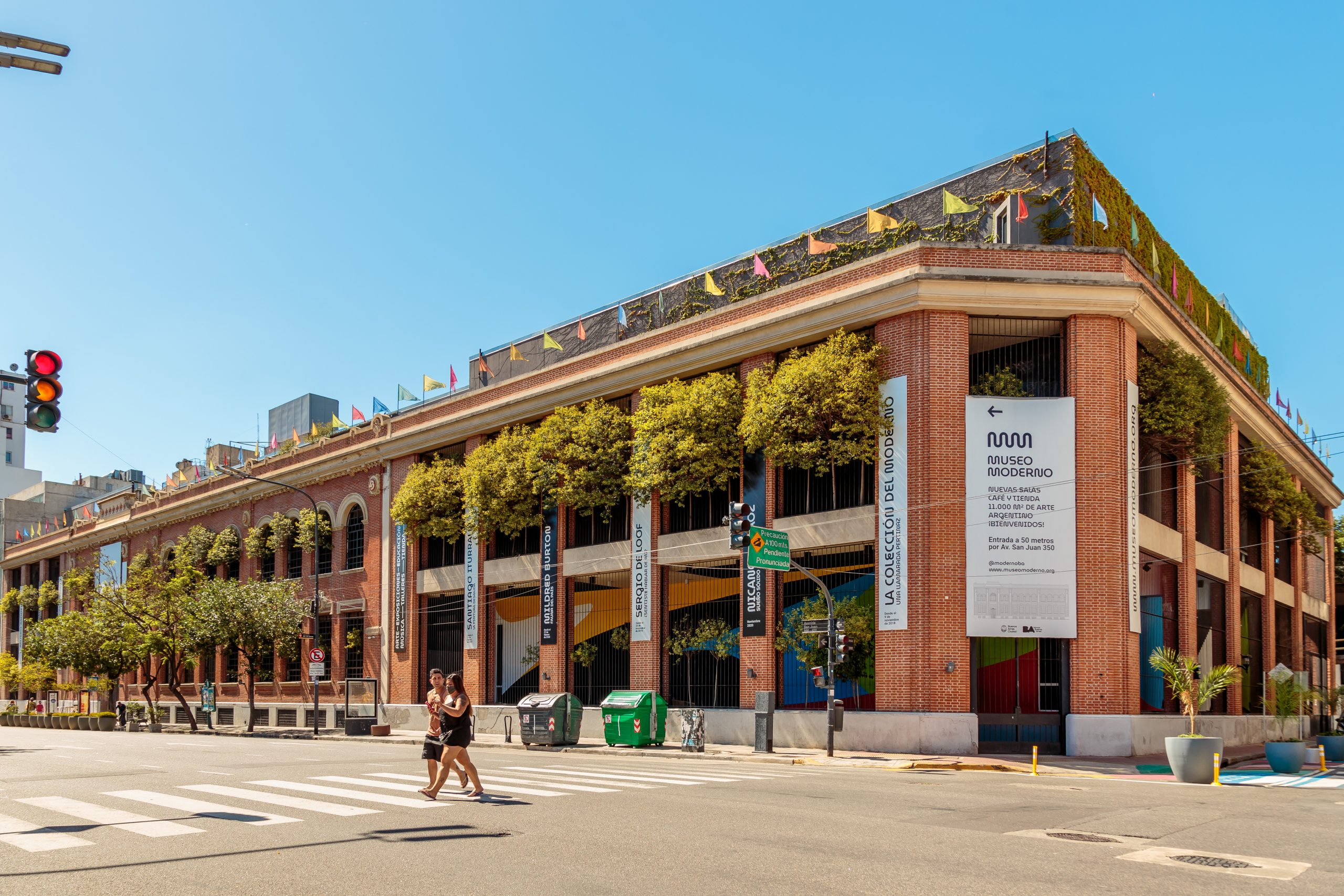
What is a co-creative museum? How can a museum activate and strengthen mutuality among its many component communities? When is it legitimate to speak about the collective creation of programmes, languages and tasks in an institutional context? Is the social a new museum mandate? What is the museum’s educational role in the production of knowledge and in the pedagogical and dialogical process? How can the construction and care of patrimony and heritage find a correlation in the relationships the museum fosters with its diverse communities? How can the museum engage with the social processes affecting our immediate communities? ‘Co-creation’ is a term largely appropriated by the corporate sector, yet the participation in the reciprocal making of meaning is a fundamental task of the contemporary museum.
For the first time in CIMAM’s history, the Conference will focus on the social role of the art museum. This function lies at the natural heart of museum practices in Latin America, where many museums vigorously take up the mantle of responding to lesser developed economic contexts in which social disparity, inequality and discrimination are the order of the day. Cultural institutions in this region are highly experienced in collaborating with artists to position the arts as a vehicle for the development of the imagination, the expansion of concepts and forms of education, the production of communal and individual knowledge, and resistance to authoritarianism; in short, as a path of effective micropolitics towards concrete social transformation, community-building and the promotion of social justice.
The need to empower museums in a context of exponential vulnerability has today extended to the whole world: institutions can feel vulnerable over non-existent codes of governance and ethics, and their lack of clarity or effective application, or over insufficient financial resources that are either too weak to support operations in less developed contexts or too scarce to face the competition of the art market in the more economically advanced contexts. Museums that have been able to function and prosper in unfavourable conditions have a great deal to offer and a great deal to say. Furthermore, inequity in human and natural rights is a trait that has become widely visible during the Covid19 pandemic: gender, economic and religious forms of discrimination, racism and hatred are on the rise, challenging all parameters of stability. The current levels of distress in most societies demand that museums privileged enough to work with living artists are rising to the occasion to develop fast, flexible and effective responses and methodologies that can bring about social and educational micropolitical change by grounding the force of their actions in the diversity and intrinsic freedom of thought, expression and creativity that is at the heart of artistic practice.
This Conference will, transversally, address ethics, values and methods as three core concerns of museum practices today. We are interested in rethinking how we do what we do and in opening up dialogue. The Conference is hosted by Argentina’s dynamic artistic community against a backdrop of economic adversity, a community that has so much to say about how to do more with less and tirelessly turns to the arts as a vehicle for touching and transforming lives.
How Can Museums Embrace their Social Responsibility? A Question from the Americas
How can museums become effective sites for playing out, debating and tackling the issues raised by societies? How can museums be affirmed as brave spaces for freedom of expression, the development of honest inquiry and the expansion of creative imaginations as they occupy their roles as producers of knowledge in dialogue with artists and civil societies? On this first day of the Conference, we look forward to setting forth holistic conceptions around how the museum can effectively make communities’ concerns its own in order to effectively respond and accompany their searches by shouldering social, cultural and educational – and decolonial! – responsibilities.
Guest Speakers
The Role of Museums in Communities, Education, and Accessibility
The museum can be an active agent in understanding art partly as a vehicle for the construction of knowledge. What is the role of the arts and artists in education as a whole, and what is the role of education as endorsed by the museum? How can the museum become a catalyst for new notions of education? How can museums foster co-creative relationships with and among artists and the local communities of situated contexts? Over the course of Day 2, we access the experiences and philosophies of specialists in education, accessibility and mental health as they weave the arts into their own practices of education, care and healing.
Guest Speakers
How Can Museums Collect, Preserve and Protect Cultural Heritage While Creating New Communities?
Day 3 is intended as an organic continuation of the debates and discussions begun during the second day of the Conference. Museums have a responsibility to preserve but also to honour situated histories, materials and archives that embody past heritages and steer us towards different futures. Museums are learning not only to preserve, but to become and remain respectful to the premises and values of the communities which such materials belong to. Can we implement different methodologies to question canonical and normative processes and so disrupt colonial legacies? Can we escape the logic of capitalism in our collections? Can we challenge our acquisition criteria and our conservation policies to accommodate the well-being of our planet? Can restitution be seen as a form of necessary healing and an opportunity to initiate a different dialogue with the past? What are the future mechanisms to implement the museum’s response in the event of wars or emergencies? Naming problems and proposing different approaches and methods has a generative effect by enabling us to collectively reflect on a museum capable of learning and transmitting how heritage is always related to an idea of the social situated not only in the past but in the future.
Guest Speakers
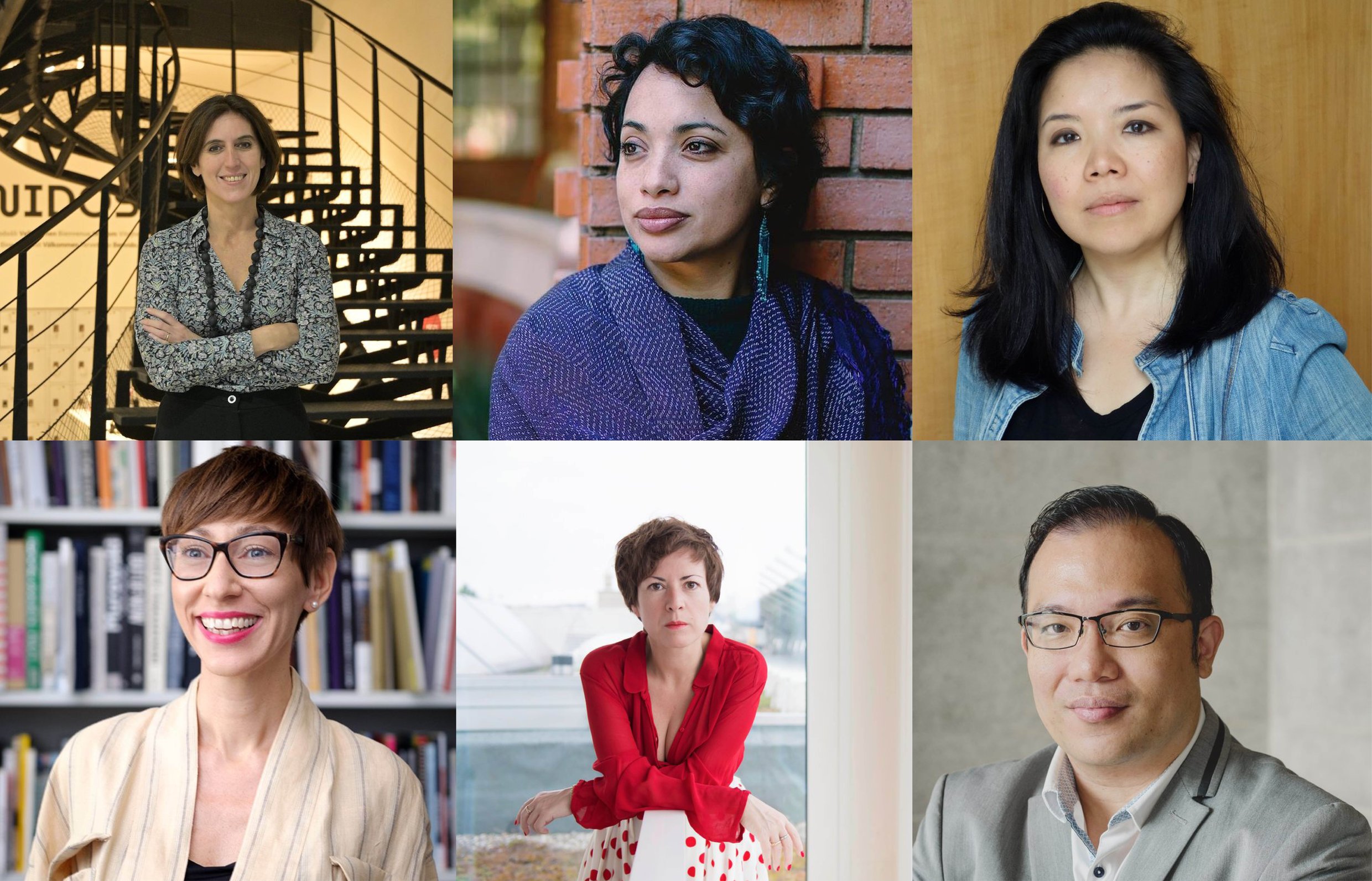
The contents of the 2023 Annual Conference have been thought and designed by the Contents Committee consisting of CIMAM Board members:
Senior Practice Manager, Culture Equity Diversity Inclusion, Wellcome Trust, London, UK
Director and Founder, Archivo de la Memoria Trans Argentina (Argentinian Trans Memory Archive), Hanover, Germany
Curatorial Advisor, RAW Material Company, Dakar, Senegal, Senior Curator (performative practices), Haus der Kulturen der Welt, Berlin, Germany.
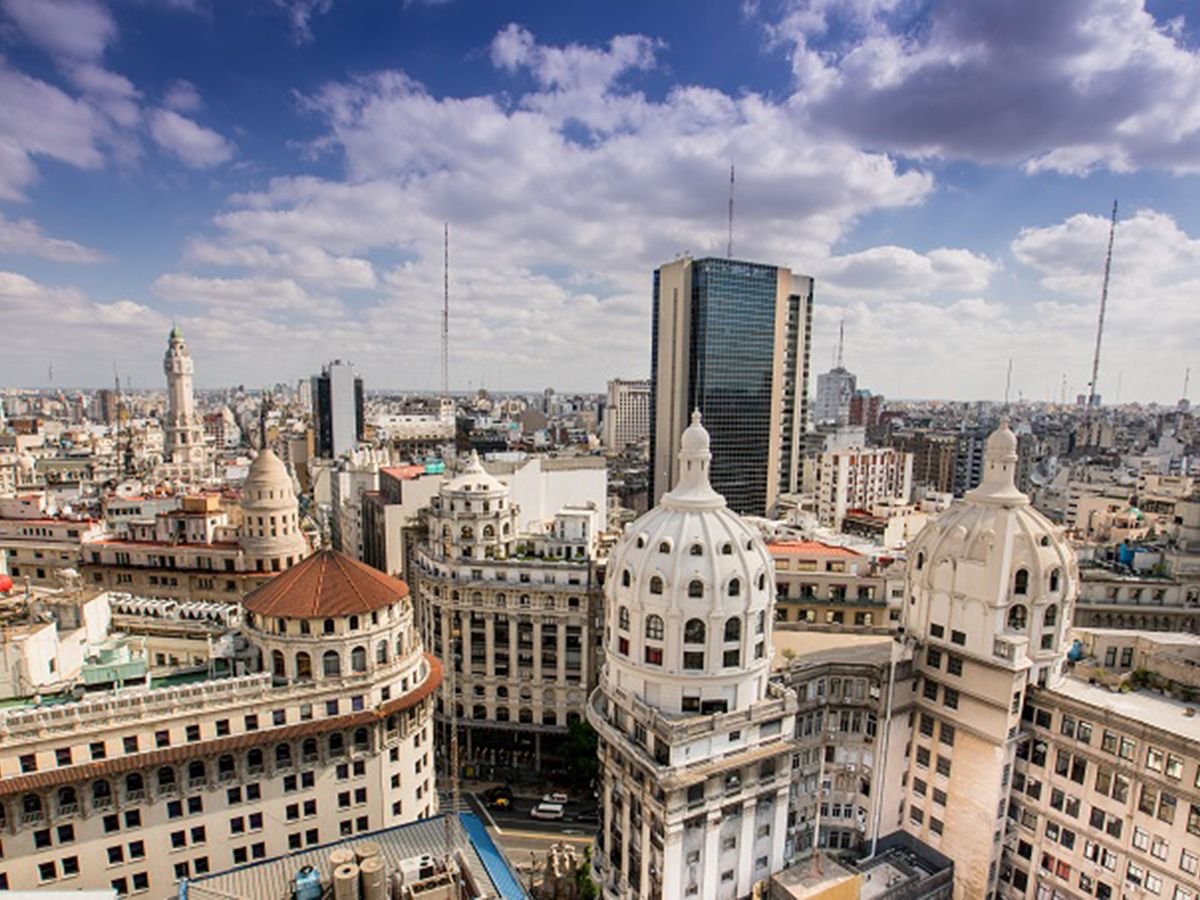
The Museo de Arte Moderno de Buenos Aires, under the auspices of the Government of the City of Buenos Aires, is the main host and organizer of the next Annual Conference.
The programming and production of the 2023 55th Annual Conference has also been made possible thanks to the generous support of the following partners and key contemporary art museums and foundations in Uruguay and Argentina: Fundación Ama Amoedo and Colección AMALITA, Fundación Proa, MALBA (Museo de Arte Latinoamericano de Buenos Aires) and the Asociación Amigos del Moderno. In addition, Arthaus is contributing important funding that will allow a minimum of twenty Argentinian professionals to attend the conference; and Andrea Arditi Schwartz is providing generous support. The conference has also received the support of the Spanish Ministry of Culture and Sport.
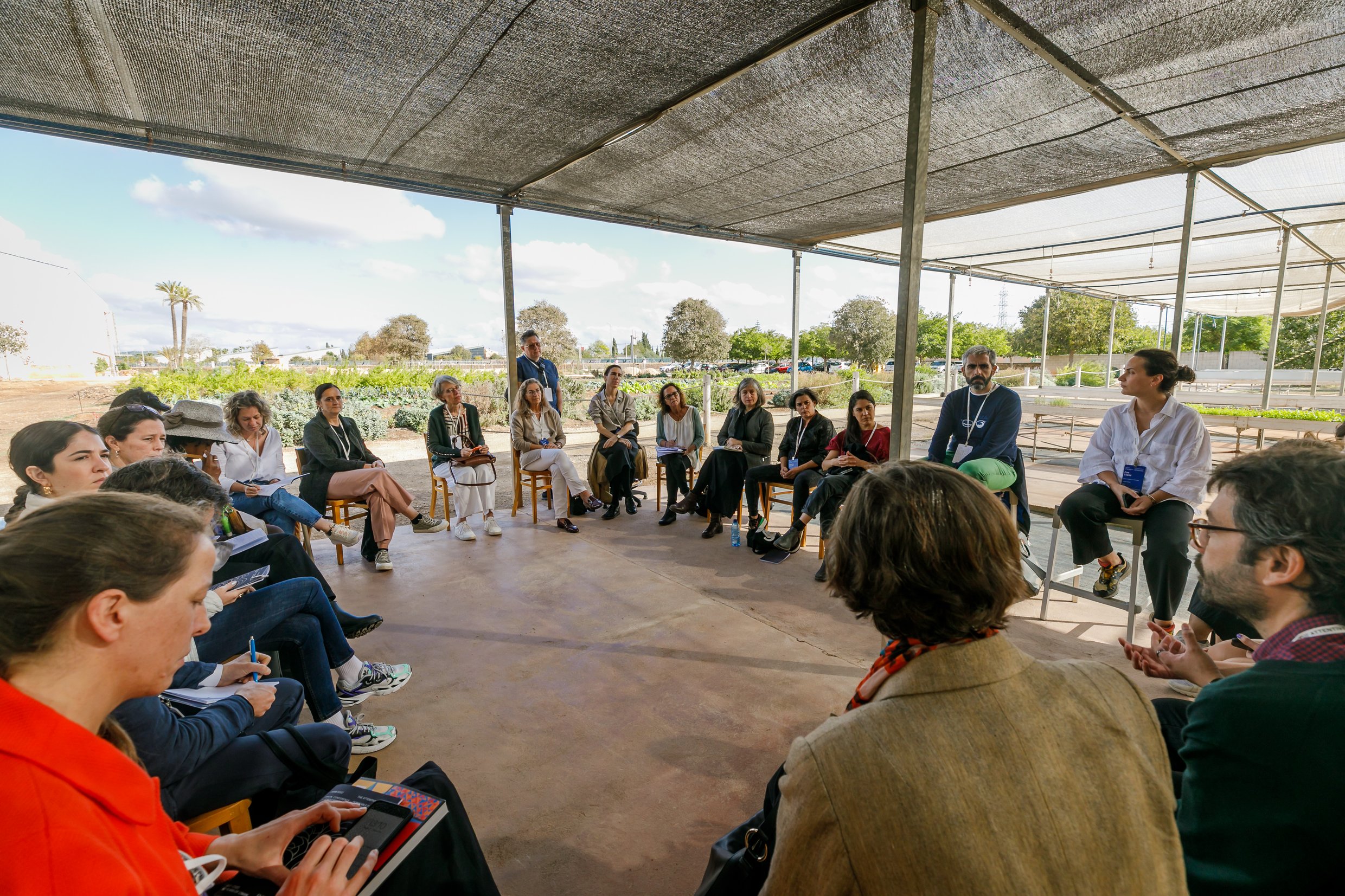
Travel grants to attend the CIMAM 2023 Annual Conference in Buenos Aires, Argentina, 9–11 November.
CIMAM is pleased to offer around 50 travel grants to support the attendance of modern and contemporary art curators, directors, and museum professionals at CIMAM’s 2023 Annual Conference titled “The Co-Creative Museum: Social Agency, Ethics, and Heritage” from 9 to 11 November 2023 hosted by the Museo de Arte Moderno de Buenos Aires, Argentina, the first Conference to offer simultaneous translation to and from Spanish.
The CIMAM Travel Grant Program aims to support the curatorial and research development of applicants through their attendance at the Annual Conference where the most current concerns on contemporary art practices are being discussed.
Grants are addressed to modern and contemporary art museum directors and curators, researchers, and independent curators whose field of research and specialization is contemporary art theory, collections, and museums.
Awarded candidates benefit from unique networking opportunities through interaction and exchange with international museum directors and peers. Travel grantees become Members of CIMAM for the term they have been awarded.
The deadline to apply is Sunday 11 June at 0:00 hrs. CEST.
→ Application Form
→ 2023 Travel Grant Funders
→ CIMAM 2023 Annual Conference
→ CIMAM Travel Grant Selection Committee
→ Questions at travelgrants@cimam.org

The presentations and debates of the 55th CIMAM Annual Conference will be held on the mornings of 9–11 November 2023 from 9 a.m.–1 p.m. in the Auditorium of the Museo de Arte Moderno de Buenos Aires. Ample time will be set aside for participation and dialogue. For the first time, simultaneous translation to and from Spanish and a crèche for children will be offered during the Conference sessions.
During the afternoon and evening sessions, a rich programme of visits will enable attendees to experience first-hand the vast spread of Argentina’s truly diverse multi-disciplinary art scene, including not only the visual arts but theatre, literature, film, dance and experimental music.
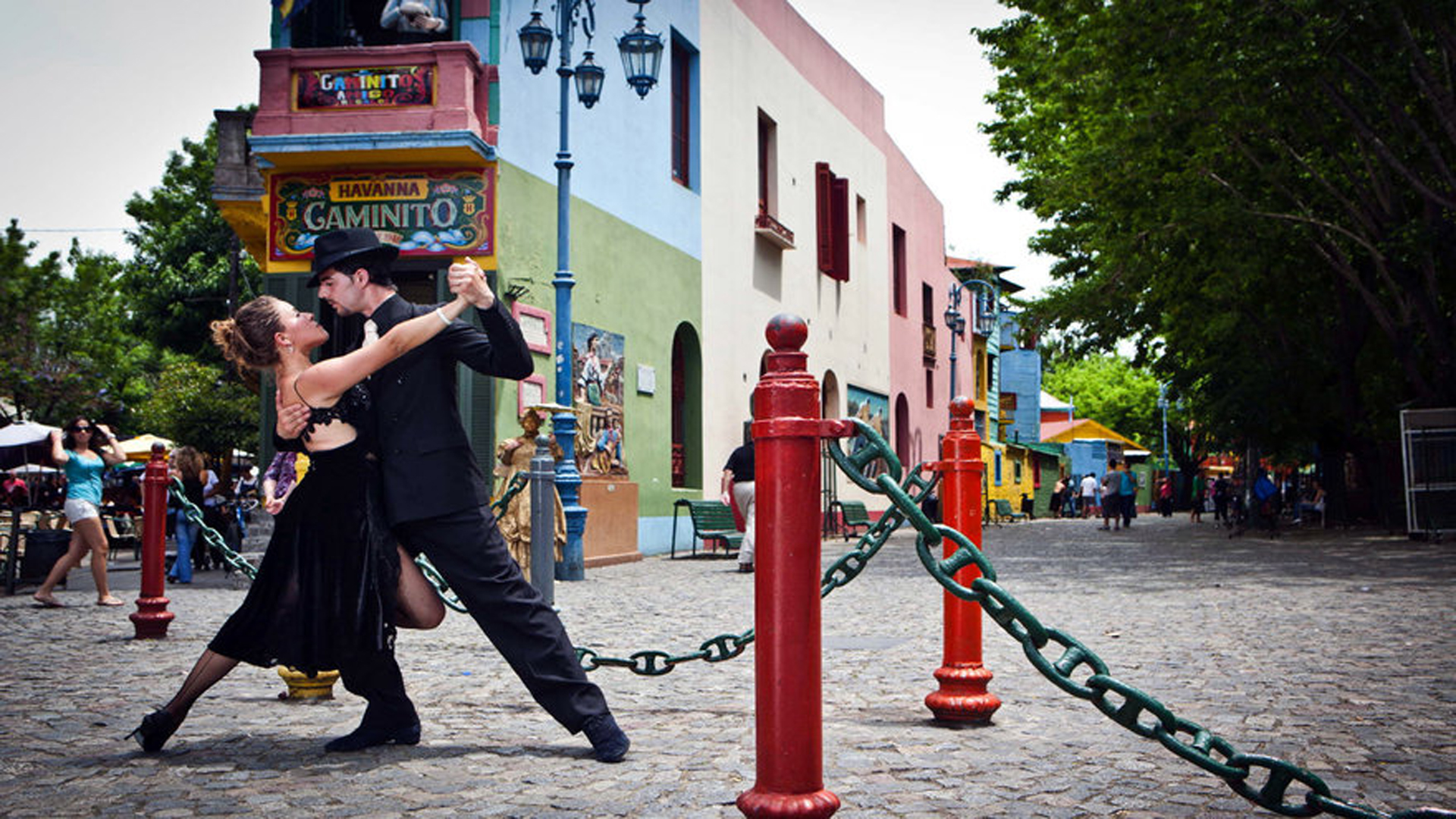
After Conference on Day 1, an informal lunch will be hosted by Fundación Proa. After visiting its current exhibition, we will tour the booming Southern Art District and its numerous art institutions and alternative spaces in the historic neighbourhoods of San Telmo and La Boca.
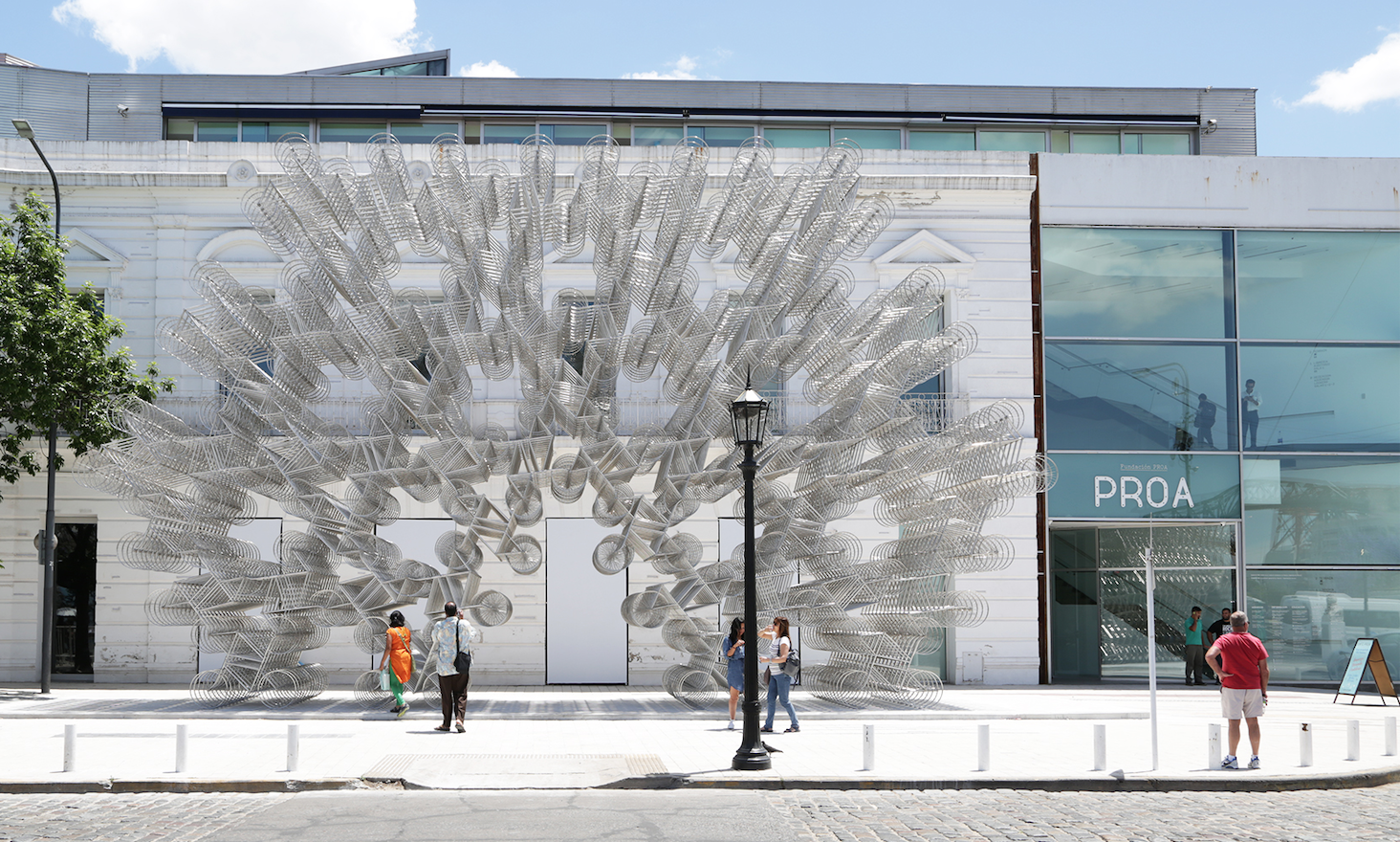
From Proa, in small groups of 15–20 to allow meaningful dialogues between visitors and the hosts of the different spaces, we will be visiting Proa21, Fundación Andreani, Fundación Larivière Fotografía Latinoamericana, Fundación Forner-Bigatti, the art galleries in the area, the alternative spaces and residency programmes of the Fundación El Mirador, La Verdi and Munar, as well as the studio of the late León Ferrari and more!
The day includes a special invitation to attend Puccini’s Madama Butterfly at the magnificent Teatro Colón, acoustically one of the six most important opera houses in the world. With a powerful gender, social and political perspective, the performance is to be directed by renowned Brazilian director, Livia Sabag.
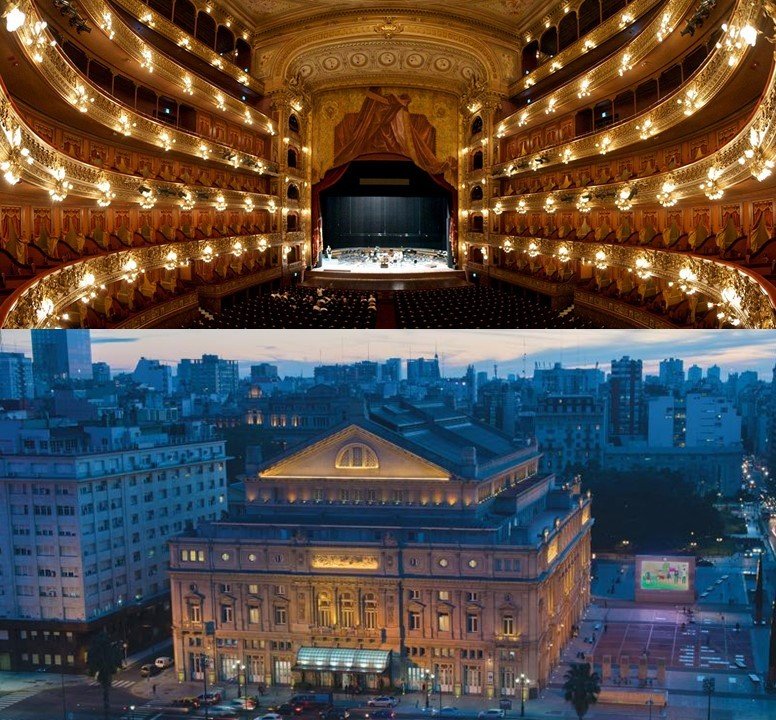
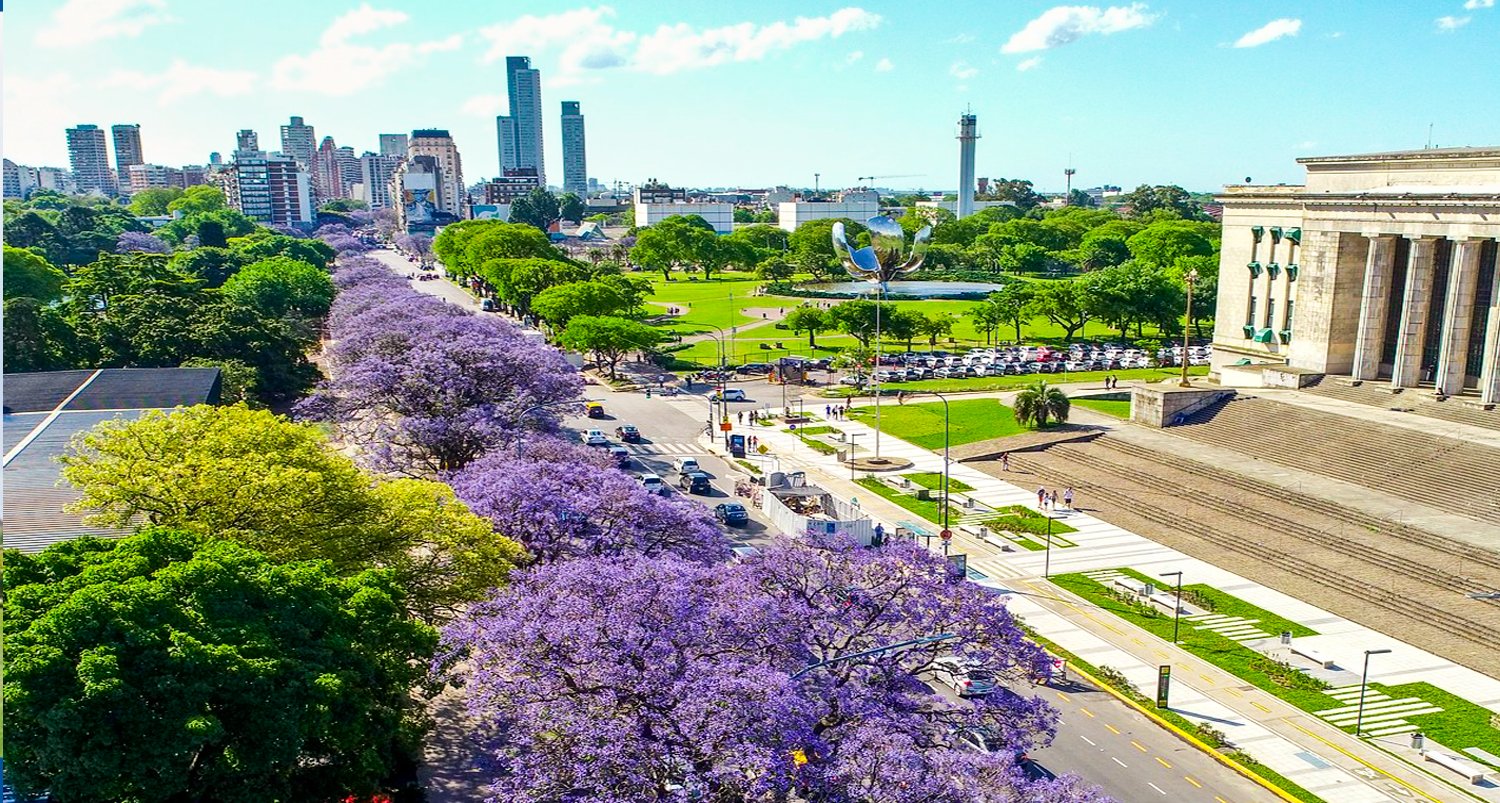
After Conference on Day 2 and a tour of the Museo Moderno’s current exhibitions, there will be an informal lunch hosted by Malba. After a visit to its current exhibitions, we will explore the various museums along Museum Mile on Libertador Avenue and on towards Puerto Madero. From Malba, we will visit the Museo Eduardo Sívori in the beautiful Palermo Gardens, the Casa Victoria Ocampo/Fondo Nacional de las Artes, designed by architect Alejandro Bustillo, and the encyclopaedic Museo Nacional de Bellas Artes. We will then head downtown to ArtHaus and finish our museum tour with an evening reception hosted by Colección AMALITA, whose premises in Puerto Madero were designed by architect Rafael Viñoly to grace the port of Buenos Aires. For those with energy to spare, we will then venture into the realms of Tango and its classic late-night milongas!
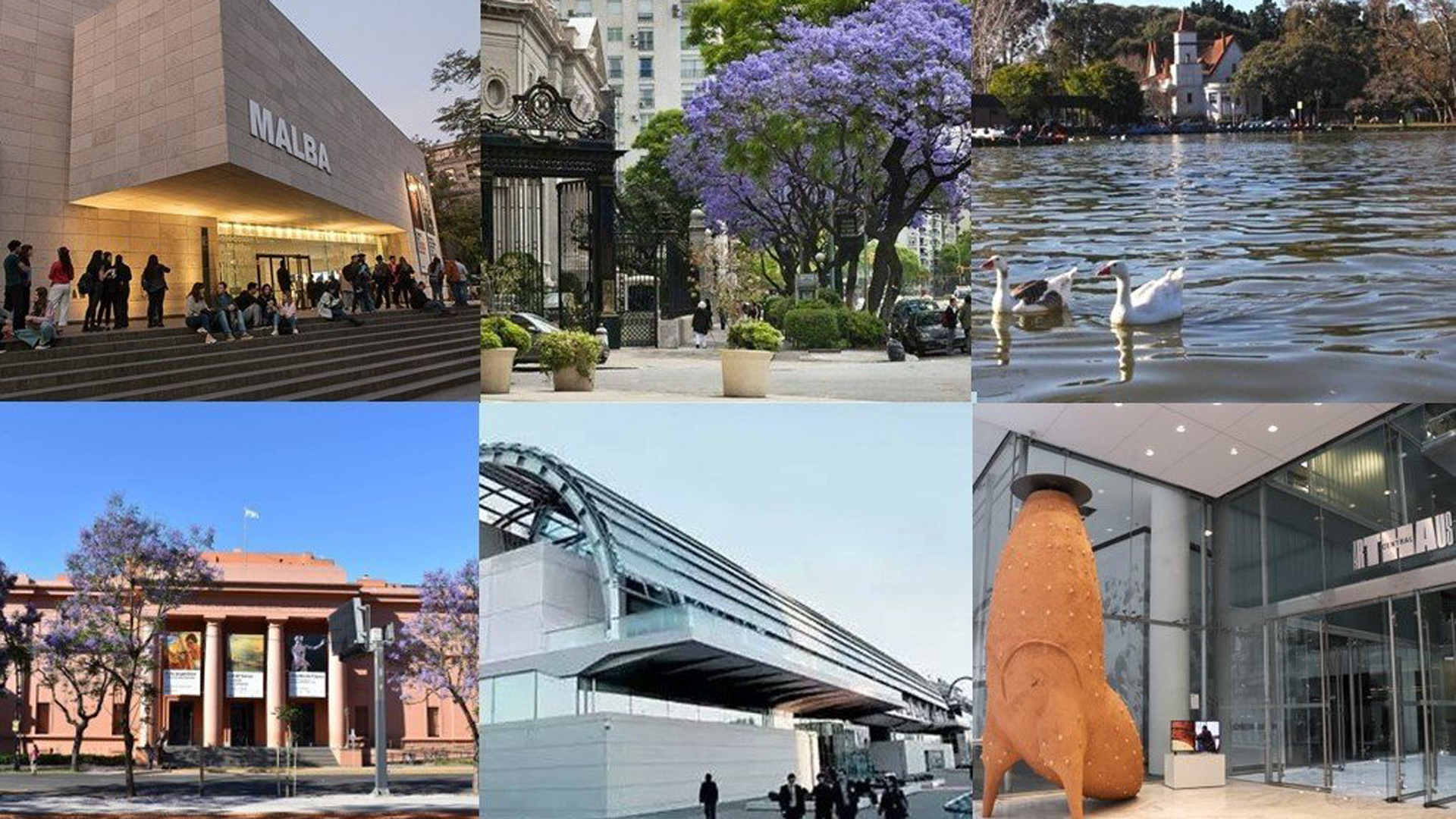
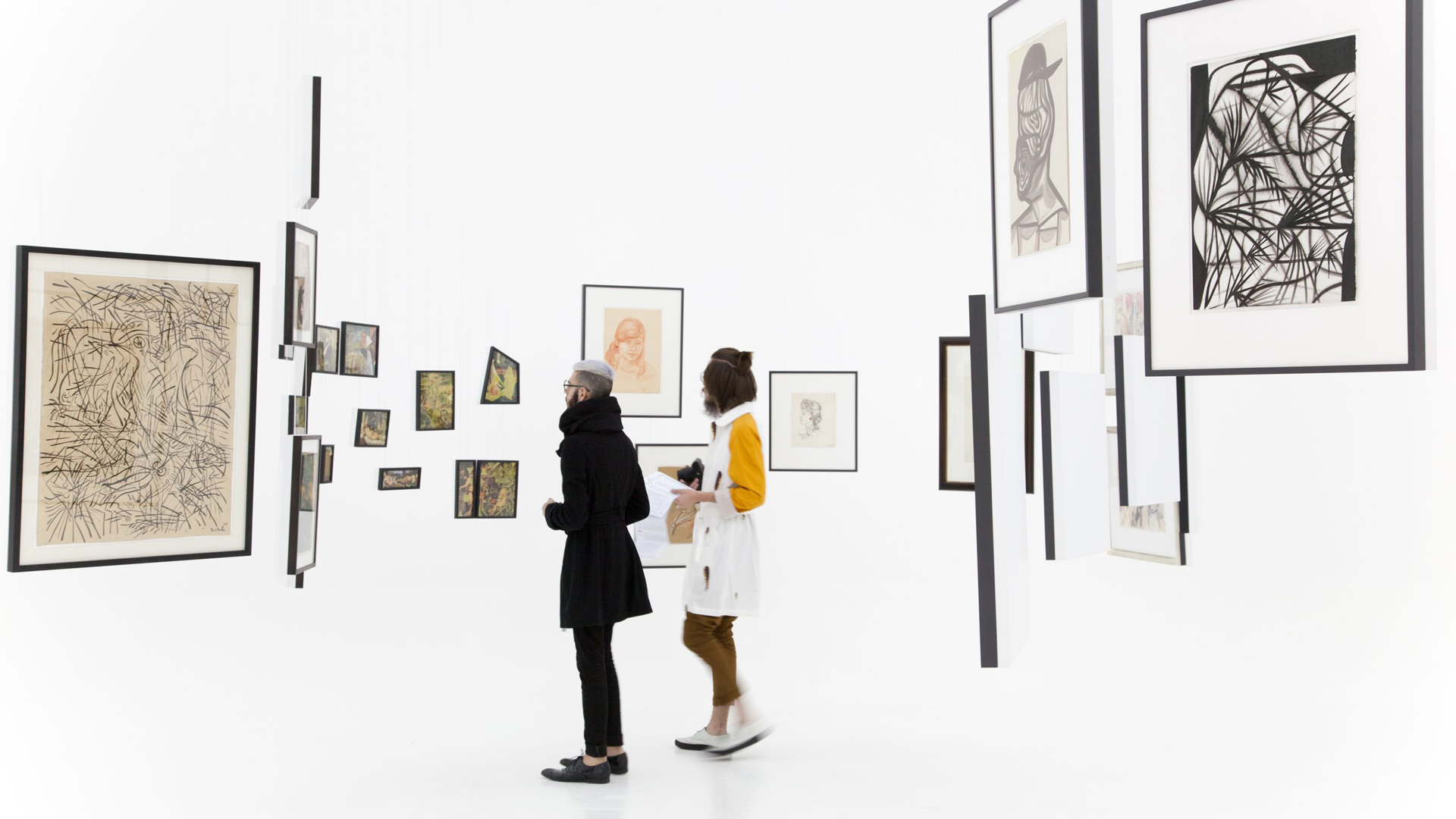
The Museo Moderno is saving the most innovative programme for Day 3, for which it will spend the whole year preparing. This experience is being designed to offer an afternoon of tailor-made visits and meetings so that all 200+ professionals attending can enter into meaningful dialogues with a potentially vast number of actors from the cultural ecosystem of the arts in Argentina.
With this in mind, we will be writing to all professionals travelling with a questionnaire about their artistic interests. In the months leading up to the Conference, the Museo Moderno’s curatorial team will be available for one-on-one conversations with every professional attending in order to provide information and feedback on artists, trends, movements, institutions, archives and projects. Starting in June, we will be inviting all attendees to access a website of Argentina’s modern and contemporary scene and the exhibitions and artists on view in November.
We therefore strongly suggest you extend your stay in Buenos Aires at the height of spring for at least two more days to take full advantage of the rich programme being prepared by the capital’s 60+ art institutions and galleries. Day 3 will then conclude with the CIMAM General Assembly and dinner in the eighteenth-century colonial monastery today housing the Fundación Mercedes Sosa, a stone’s throw from the Moderno. Dinner and the after-dinner party will be organized and supported by the Asociación de Amigos del Museo Moderno in honour of all the CIMAM travellers and local hosts taking part in this intense 3-day programme. All of us here in the Argentinian capital are already looking forward to welcoming you!
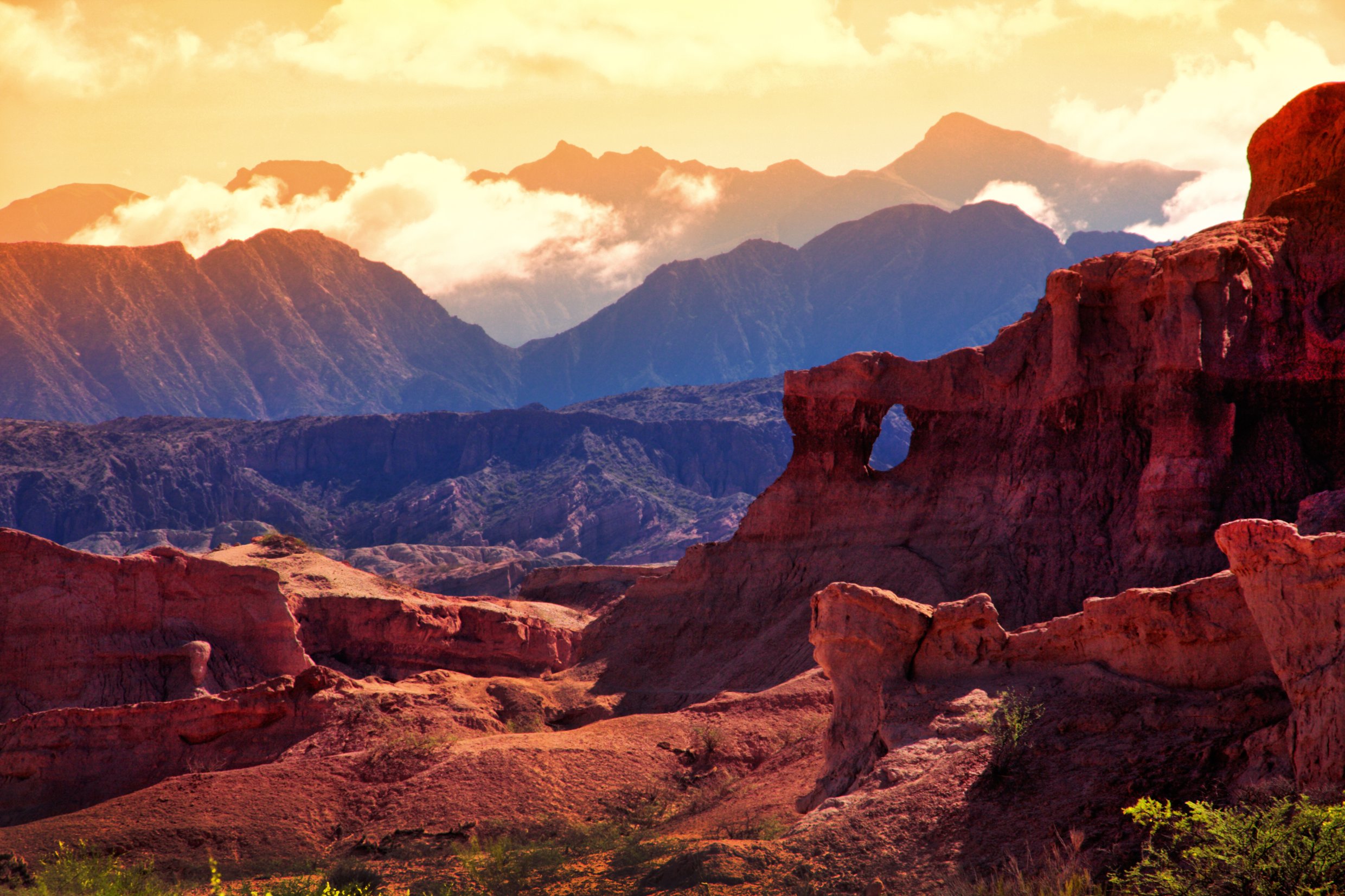
Dates:
Sunday 12th November (early morning) Transfer to Salta by plane.
Overnight at Salta
Monday 13th. November Transfer to Buenos Aires by plane arriving back in the capital at 11.15 p.m.
To fully enjoy your trip, we recommend extending your stay for longer than the days of the program, as this is a unique and worthwhile experience.
The Museo Moderno invites you to reserve a ticket for a Post-Conference Tour to Salta in the Argentinian North-West, 12–13 November 2023. Known as ‘Salta La Linda’ (Salta The Beautiful), the city is set in gorgeous Andean landscapes and showcases an exceptionally important tradition of visual arts informed by the landscape, local materials including red soils and clays and natural dyes, indigenous local cultures in the realms of weaving and pottery, and major cultural crossovers with modern and contemporary art.
On Sunday November 12, we will be taking an early flight from Jorge Newbery Airport in the heart of Buenos Aires (15 mins from the hotel) to Salta, where we will have the chance to visit the city’s standout spaces and exhibitions, including the Museo de Arte Contemporáneo (MAC) and the Museo Provincial de Bellas Artes de Salta, which, among other shows, will be housing the group exhibition of Wichí artists Lhajus Lhenek, curated by the Wichí artists’ and poets’ collective Centro Cultural TEWOK from the north of Salta Province. We will also visit the legendary tapestry studio of ‘Pajita’ and Rodrigo García Bes, as well as the vital art space Remota, run by artist Guido Yannitto and gallery owner Gonzalo Elías.
On Monday November 13, we will be setting off early in the morning and travelling in the comfort of coaches through one of the most spectacular mountainous landscapes in the world to the Andean town of Cafayate, home to a vibrant community of contemporary artists. We will pause along the way to enjoy the many views and places of interest, such as the Garganta del Diablo (Devil’s Throat) and the Amphitheatre, a rock formation that will feature an on-site project by Cafayate-born artist Javier Soria Vázquez. Lunch will be served in one of the local vineyards in the heart of the Calchaquí Valleys, after which we can take in the studio museum of the late artist Calixto Mamaní in the village. Finally, we will immerse ourselves in the open-air project by local artist Florencia Sadir. We then return to Salta to take an evening flight to Buenos Aires, arriving in the capital on Monday 13 November at 11.15 p.m.
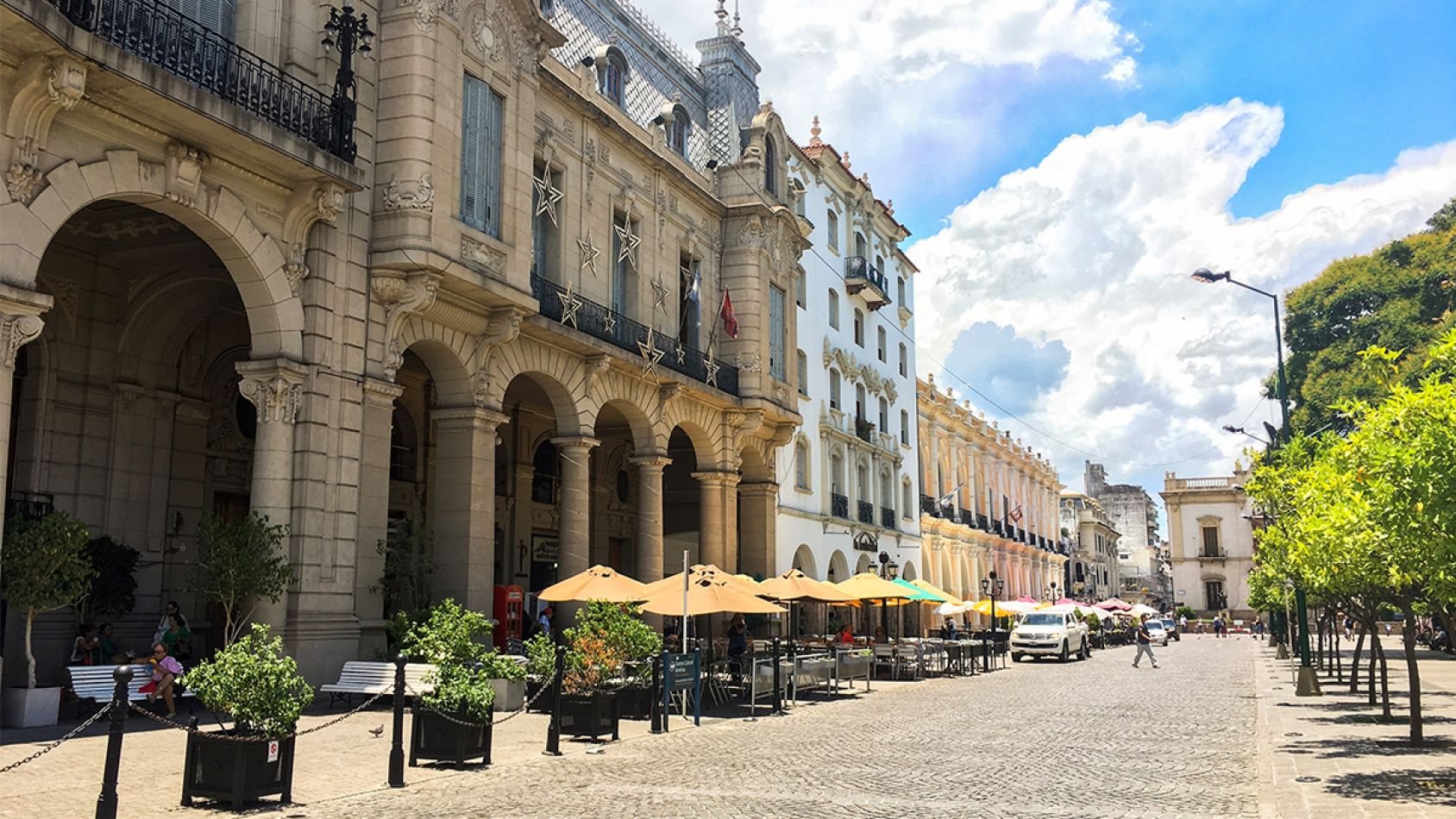
Should you wish to take further advantage of your trip to the Southern Cone, we strongly recommend a layover in São Paulo to visit the São Paulo International Biennal and the plethora of exhibitions the city is host to at that time of year. A stop in Rio de Janeiro, or Belho Horizonte to visit the Inhotim, or Porto Alegre, or Bahia, or so many other Brazilian scenes is always highly rewarding!
We here in Argentina will be happy to advise you on any further travel destinations within the country. You may like to consider visiting the rich cultural scenes of Córdoba City, Rosario or Santa Fe, the Iberá Wetlands, the Patagonian Lakes, the Southern traditions of Ushuaia, the wine scenes of Mendoza or the breath-taking landscapes of San Juan and the Iguazú Falls, to name just a few possible destinations.
And as denizens of the Southern Cone, we can provide enthusiastic and well-informed advice should you consider extending your trip on to Uruguay, Chile, Bolivia and Paraguay!
For further information, please contact: visitscimam@museomoderno.org